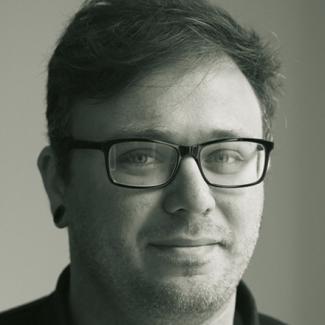HBO miniseries
“Chernobyl”: The cost of lies

On 26 April 1986, the number four reactor of the Chernobyl nuclear power plant went out of control. Thirty-seven years after the accident, the area around the city of the same name in the north of present-day Ukraine is still uninhabitable. It will remain so for the foreseeable future because, according to Greenpeace, the exclusion zone surrounding the former nuclear power plant will remain radioactively contaminated for thousands of years.
In the historical drama “Chernobyl”, the chemist Valery Legasov, played by Jared Harris, and the nuclear physicist Ulana Khomyuk (Emily Watson) look for a cause in the immediate aftermath of the accident. The scientists find that Soviet functionaries are hard nuts to crack. They downplay the accident and show no interest in investigating it. Boris Scherbina, played by Stellan Skarsgård, is their only ally. As a politician, he knows his way around the state apparatus and helps the duo manoeuvre through the Soviet system.
The series eschews spectacular special effects for the reactor explosion. Instead, audiences experience the disaster from the perspective of the people on site. That means that initially all that is heard of the catastrophe is a loud bang. The audience doesn’t see or hear any more than the characters – the scope of what actually happened is only revealed in the last episode, when the incident is reviewed in a trial.
The fact that viewers know how the story ends has no impact on the series’ suspense. The first episode recalls a dystopian thriller: families gather in front of their houses in Chernobyl and gaze at the colourful lights that a fire at the nuclear power plant is shining into the night sky. Children play in radioactive ash, which they think is snow. They have no idea that they are being exposed to deadly radiation. Such moments are hard to watch, knowing what we know today.
Chernobyl doesn’t point any fingers
The series doesn’t make any one responsible for the disaster, though there is a potential culprit. In the first episode, the irascible Anatoly Dyatlov, played by Paul Ritter, bullies his colleagues in the tense control room of the nuclear power plant. As chief engineer, he is in denial about the accident, even though he sees graphite on the floor – a clear signal that an explosion has taken place. The real Dyatlov served time in prison for disregarding established safety protocols. The series, however, characterises him as a scapegoat. It claims that the state’s attempts to hide a design flaw in the reactor were the real cause of the accident.
Chernobyl had a lasting influence on the debate about nuclear energy. While the anti-nuclear movement predates it, the accident awakened critical awareness of the dangers of such technology among the general public of many industrialised states.
Yet according to an interview with screenplay author Craig Mazin in Slate Magazine, “Chernobyl” is not meant to be explicitly anti-Communist or an anti-nuclear appeal. Instead, Mazin wanted “Chernobyl” to warn against the dangers of disinformation. Protagonist Valery Legasov therefore begins and ends the story with the question: “What is the cost of lies?”
Mazin is famous for the “Hangover” comedies. Not many would have trusted him with a story like “Chernobyl”.
But HBO was rewarded for its trust in the author. “Chernobyl” earned top ratings on the internet film database IMDB shortly after the series began. It also won numerous television prizes for the network.
In light of the ongoing debate about nuclear energy in many countries and the increasing number of disinformation campaigns online, the themes in “Chernobyl” remain highly relevant even decades after the reactor accident.
Series
Chernobyl, 2019, USA and UK. Director: Johan Renck.
Mustafa Shrestha is studying online journalism at the University of Applied Sciences in Darmstadt, Germany. He composed this text as part of his internship at D+C/E+Z.
euz.editor@dandc.eu







